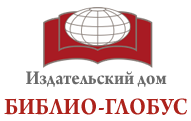Федорова Ольга Ивановна – доцент кафедры экономической теории, кандидат экономических наук, доцент (Оренбургский Государственный Университет)
Зуева Елена Геннадьевна – доцент кафедры экономической теории, кандидат экономических наук (Оренбургский Государственный Университет)
В статье поставлена цель охарактеризовать возможности и ограничения накопления и реализации человеческого капитала в условиях глубокого проникновения новых технологий в экономическую деятельность. Несмотря на то, что информация и виды экономической деятельности, связанные с ее производством и обработкой, стали важными факторами социально-экономического развития, рабочая сила продолжает оставаться ведущим элементом данного процесса. В России движение в сторону цифровизации экономических процессов совпало с продолжающейся трансформацией экономики в соответствии с принципами рыночной системы хозяйствования, что значительно усложняет задачу следования тренду развития мирового хозяйства. Но несмотря на объективные сложности, закономерным результатом обновления всех сторон жизни общества результатом развития цифровой экономики (или нового технологического уклада) становится отличное от индустриальной экономики сегментирование рынка труда и формирование постиндустриального типа работника.
Tel : +7 495 648 6241
Fax : +7 495 648 6241
E-mail : info@idbg.ru
Address : 101000, Москва. ул. Мясницкая, д. 13, стр. 2
Сейчас у нас проходит акция - издание научной монографии стоит всего 15 т.р.
Подробнее